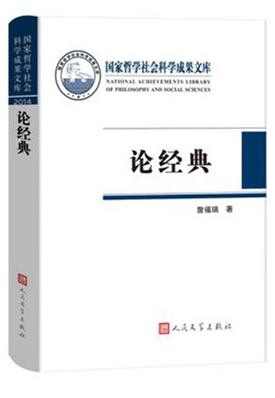Reading classics key to social progress

On Classics
Author: Zan Furui
Publisher: People’s Literature Publishing House
Classic works of literature have been around since ancient times and include the works of great philosophers that were passed on down through the generations. They represent the excellent cultural legacy of mankind because they reflect on social and life questions of general concern, and cultivate moral character. However, with a wave of popular culture, classics seem to have been replaced by entertaining and casual reading, which is what On Classics intends to address.
The book digs into the “lack of classics” in our daily lives and strives to offer a solution, hoping to bring classic works back to the forefront and promote nationwide reading.
The book explores the attributes of classics in detail. In a way, the book can be seen as a parallel of American literary critic Harold Bloom’s The Western Canon.
The author starts with a debate over the nature of classics between the East and the West and defines classics as having two tendencies, namely “internal quality” and “external structure.” Through analyzing specific pieces, the author identifies classics as inheritable, universal, authoritative, readable and accumulative. In addition, the book discusses the impact that politics, media and education have on the communication and structure of classics as well as the challenges that the public and classics face nowadays, addressing the question of “why read classics and what kind of classics we should read?” at its root.
The book has a few distinctive characteristics. First, it conducts sharp analysis with sound proof. Theoretical narrative appears to be harder than literacy creation because theory itself is abstract and objective. In this book on theories, the author does not dwell on the theories themselves. Instead, it examines a variety of phenomena related to literacy and culture and introduces convincing documents to present readers a lively lesson in classics.
Next, one important feature of this book lies in its wide range of quotations, including roughly 211 references, among which more than 50 are ancient Chinese classics, and 63 are from foreign studies and research. In addition to novels, essays, poetry and drama, it also borrows from humanities and social science disciplines, such as history, philosophy, aesthetics, religion, sociology, bibliography and education.
Finally, the book is well structured with clear logic. The first three chapters answer the question “what are classics?” followed by a discussion on the nature of classical works. The third part explains the relationship between politics, media, education and classics.
As the author puts it, classics are of great significance for the public in terms of understanding society and improving their judgments of right and wrong. They will not only prompt readers to be better people, but also urge a nation, even the human world, to make progress.
Tang Meng is from the School of Literature at Nankai University.
